Ukrainians’ love for their country has stymied the might of Russia’s army
Young, English speaking and educated abroad, Vasyl Myroshnychenko — Ukraine’s ambassador of just six weeks — typifies a new generation changing the political system.
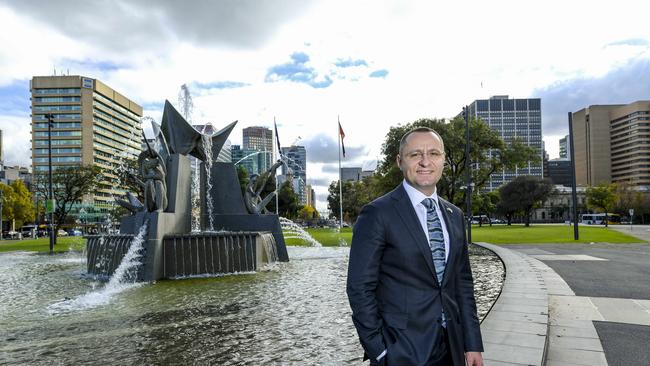
Had Winston Churchill concurred with British prime minister Neville Chamberlain’s feeble 1930s policy of appeasing Adolf Hitler, modern-day Europe would be unrecognisable.
Russian President Vladimir Putin clearly expected to encounter armies of appeasers when his vast columns of tanks, men and missiles were sent into Ukraine. But you have to win before you go to war. A deluded Putin thought he had. Instead, he has encountered only defiance driven by a simple, but deep and singular force: Ukrainians’ love for their country.
Their new ambassador to Australia will correct anyone who refers to any of his fellow citizens as refugees; they are displaced people, he insists, temporarily unable to live in their homeland, but determined to return and rebuild. Vasyl Myroshnychenko’s journey out of Ukraine – he had been appointed by President Volodymyr Zelensky days before the invasion – was like that of so many. He had just a few hours to collect together wife Liana and their children, Yaroslava, 18, and son Yuriy, who is just five, and a few clothes and possessions before heading for the border with Romania and flying to Australia.
With Kyiv’s petrol stations drained of fuel, there was a nailbiting, three-day wait in a friend’s basement as Putin’s bomb spree haphazardly pockmarked the capital. Hundreds were killed.
Before being appointed to the Canberra post, Myroshnychenko, 40, ran a consultancy business out of Kyiv for 20 years with four partners. “We were focused on digital communications, public relations, reputation management,” he said.
His company was involved in various industries, from IT to agriculture. It oversaw the Ukraine pavilion on the sidelines of the World Economic Forum in Davos, Switzerland. It also represented the interests of Google and Uber in Ukraine.
And it helped pioneer Ukraine’s entry to the Eurovision song contest. “And when Ukraine won we were involved in hosting it. It was a major boost for Ukraine’s reputation,” he said. Ukraine, which won Eurovision in 2004 and 2016, is again in this weekend’s finals in Turin, Italy.
After school, Myroshnychenko studied international relations and met his wife who was completing the same course. He later graduated from the London School of Economics. While studying, he helped establish the European Youth Parliament and created a Ukrainian chapter of which he was president for two years.
“In 2001, I was 20 and went for the first time to Europe to a session of the European Parliament that took place in Sweden at Stockholm City Hall (where the Nobel prizes are awarded) and represented my country for the first time.”
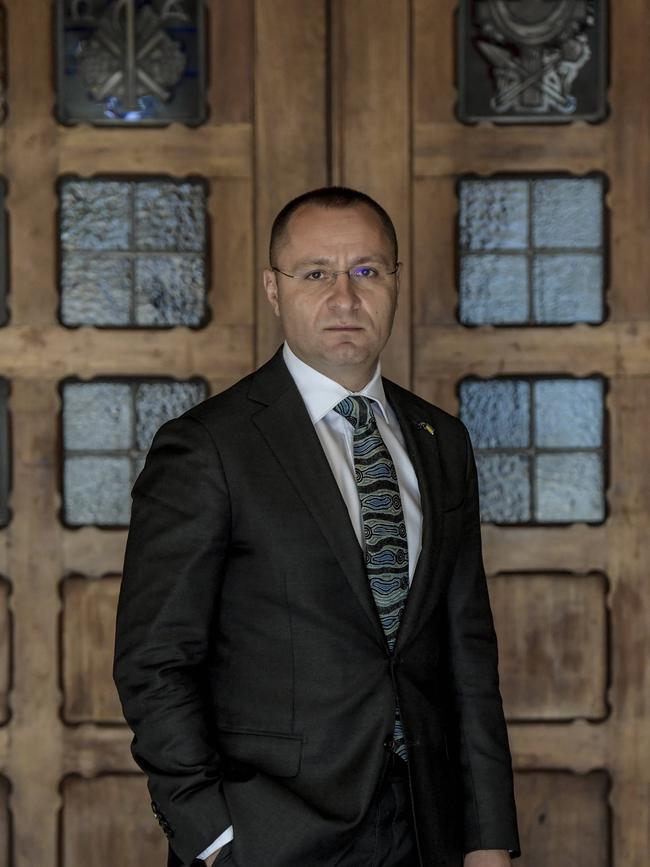
The youth parliament operates in two languages: English (his is perfect) and French – of which he describes his grasp as “very rustic”. That opportunity was life-changing for him and others. “Many alumni of that organisation are in government. We have three or four members of (Ukraine’s) parliament.”
His family might be on the other side of the world, but they live through Russia’s war on his homeland every day. His parents and those of his wife live in relatively safe areas, but nowhere is beyond Russia’s missiles, as it has demonstrated twice in recent weeks with deadly attacks on Lviv which is close to the border with Poland. Two former university classmates have been killed in the fighting, one on day three of the conflict.
Myroshnychenko was in the House of Representatives when Zelensky, 44, addressed the Australian Parliament last month, in a speech bookended by unprecedented standing ovations. “I was never as proud of Ukraine as of that moment,” he remembers.
“When our President spoke I saw the reaction in the chamber – that level of respect and admiration is something that made me feel really proud as a Ukrainian. To think of how he has performed during this war, he will be forever remembered. In our history. In world history. It’s phenomenal.”
The ambassador said his President has changed the political system. “When he was elected in a landslide (73 per cent voted for him in 2019), he brought in new faces. Look at the generation of people running Ukraine now – and look at the generation of people running things in Russia. They are different generations.
“Many ministers are younger than me. We are the new generation of Ukraine. English-speaking, many of us educated abroad. There will be more of them. We want to change the country. We see a unique opportunity, after these extremely tragic, horrific events, to transform the country.”
Until it surrendered its weapons in 1994 as part of the Budapest Memorandum – an agreement signed by US president Bill Clinton, Russian president Boris Yeltsin, and Ukrainian president Leonid Kravchuk, who died on Tuesday – Ukraine had the third largest nuclear arsenal on earth.
In this document, Russia guaranteed not to use military or economic force against Ukraine. Would Russia have attacked had Ukraine not surrendered these weapons? “Of course not,” said Myroshnychenko.
“Nuclear weapons have always served as a deterrent. During the Cold War they were never used because everyone had them. If they had been used it would have been the end of the world. It served a purpose.”
He believes that, in retrospect the deal, encouraged by the US, may have been a mistake. “We’ve talked a lot about the Budapest Memorandum since (Russia attacked Crimea in) 2014.”
Last year, the Ukrainian ambassador to Germany spoke about a possible return to nuclear arms, but his government quickly issued a statement refuting this. “It was a slip of the tongue,” said Myroshnychenko. Ironically, as part of the Budapest agreements, China also pledged to honour the sovereignty of Ukraine. “But they weren’t guarantees, they were assurances – assurance has no legal force. It’s not worth the paper it’s signed on.”
Nonetheless, he believes China is very important to his country. “We have normal relations with China. My government is engaging with China a lot. We continue to talk to China.”
He has not yet met his Russian counterpart in Canberra, the florid, John Lennon-quoting Alexey Pavlovsky who, days before the invasion, blamed Western nations for supporting Ukraine. They were “fanning hysteria” and their actions might lead to war said Pavlovsky, who added that he hoped for more “balanced and accurate” reporting in Australia of Russia. “You may say I’m a dreamer,” he added with a cynicism not intended by the author of those words.
It was Ukraine’s prospective membership of NATO that at least partly inspired Putin’s slaughter across the border. But Myroshnychenko does not rule out joining it in the future. “Why not? If NATO had accepted Ukraine (at the Bucharest Summit) in 2008 we could have joined two or three years later and there would be no war now. The future of Ukraine is in the EU and definitely in NATO.”
But there will still need to be a treaty with Russia.
“They will always be our neighbours,” he had told a group of newly arrived countrymen and women the previous night.


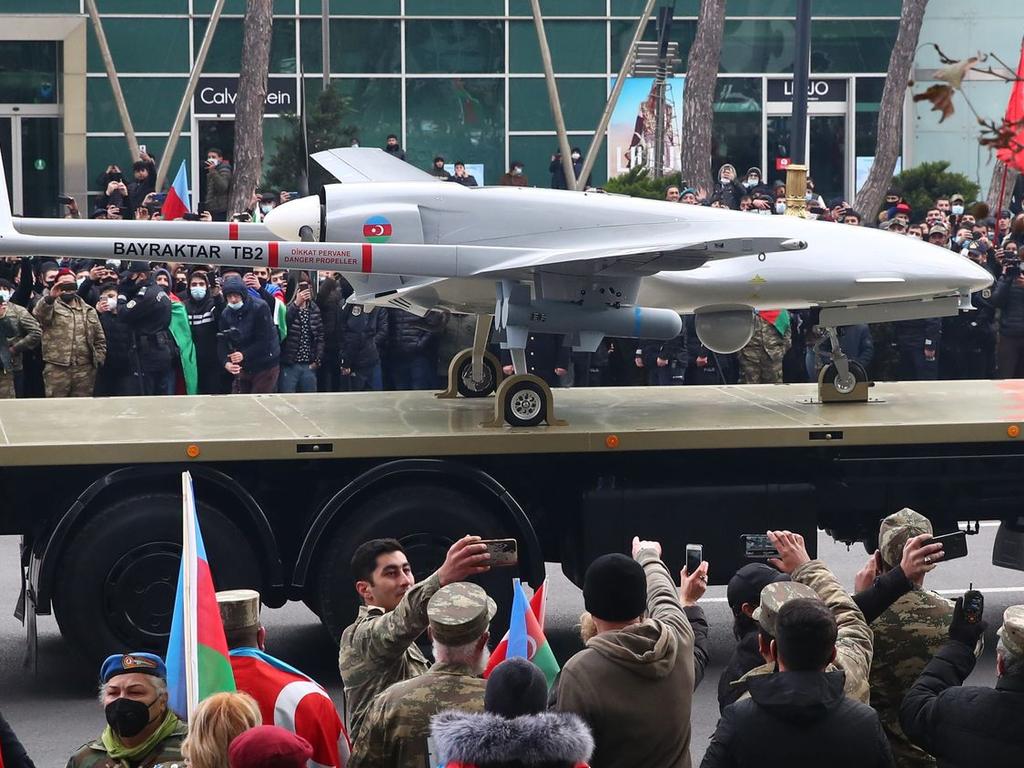
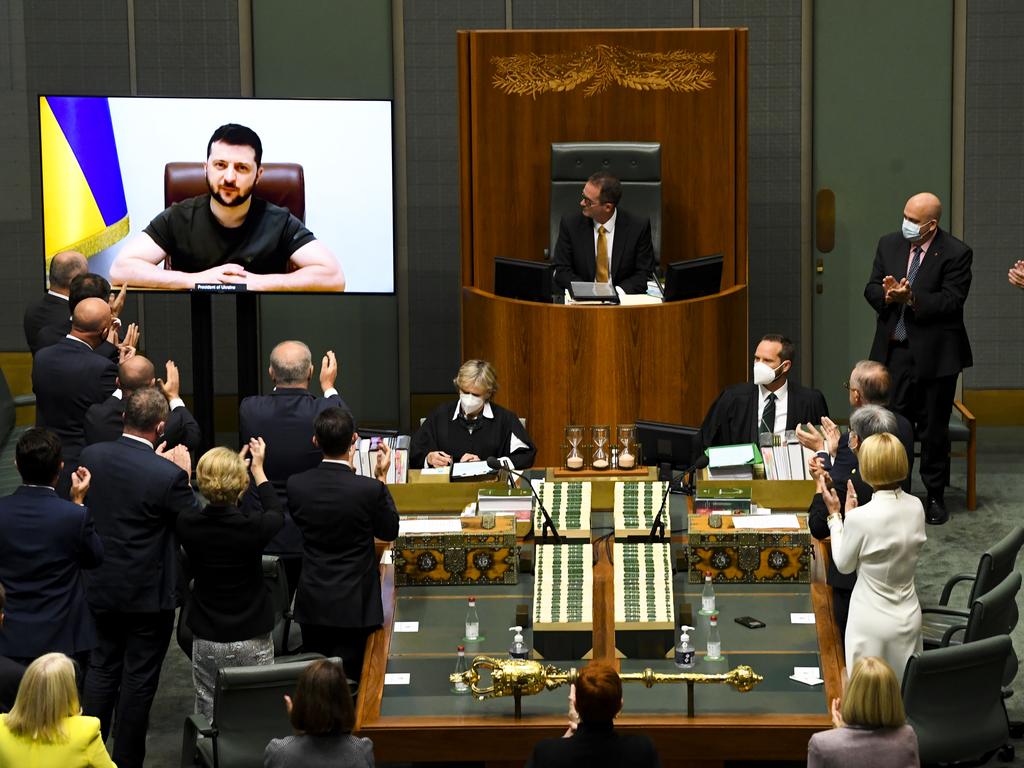
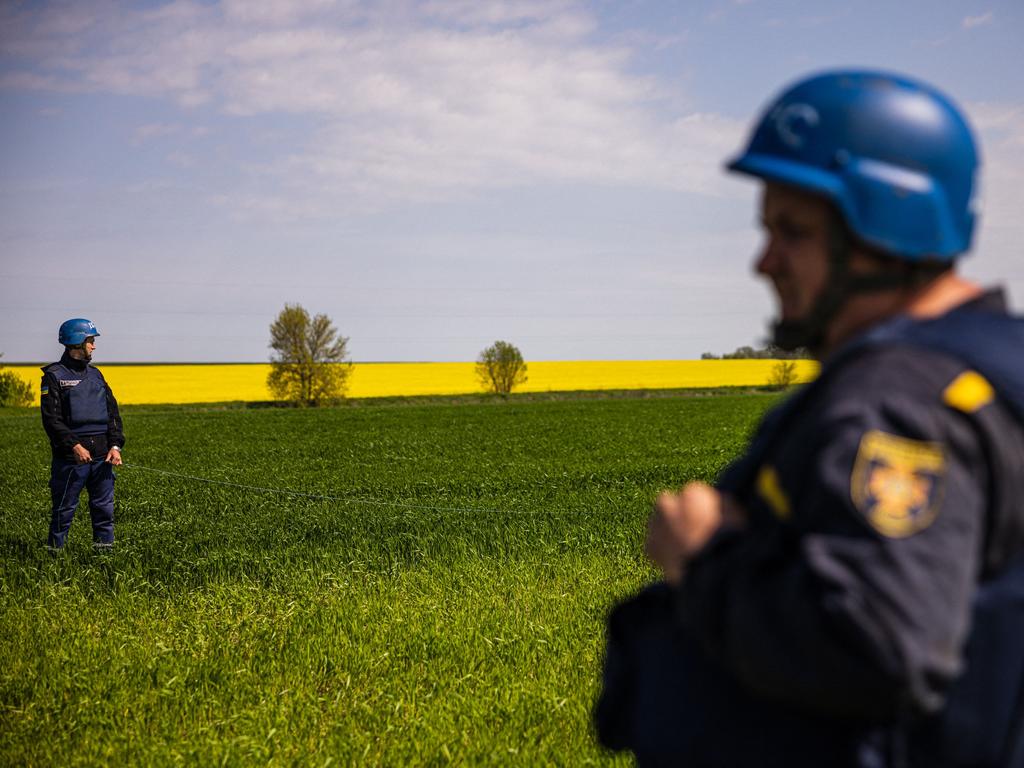


To join the conversation, please log in. Don't have an account? Register
Join the conversation, you are commenting as Logout